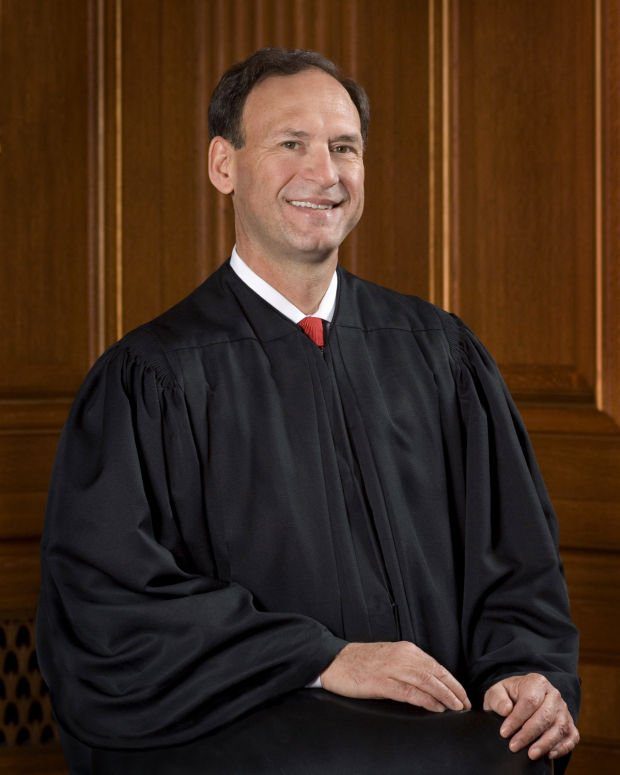More than 700 people gathered at the Pepperdine University School of Law’s annual Dinner in downtown Los Angeles on Saturday to hear Supreme Court Justice Samuel Alito speak on the challenges of serving on the bench, as well as his life leading up to the Supreme Court.
Attorney and Pepperdine alumnus Mark Hiepler moderated the discussion.
President George W. Bush nominated Alito to the Supreme Court in 2005 and the Senate confirmed Alito with a vote of 58-42, replacing Justice Sandra Day O’Connor on the high court. “To put on my robe and go out there, it was really a surreal experience,” Alito said.
Challenges as a Justice
When asked by Hiepler to reflect on some of the tougher cases he’s presided over, Alito recalled one involving the Westboro Baptist Church.
In the 2011 case of Snyder v. Phelps, the court had to decide whether Albert Snyder could recover damages for intentional infliction of emotional distress after Westboro Baptist Church members picketed his war veteran son’s funeral.
The majority of the court held that the 1st Amendment afforded protection to the picketers since their comments fell within the ambit of free speech on matters of public concern.
Alito was the sole dissenter. “Our profound national commitment to free and open debate is not a license for the vicious verbal assault that occurred in this case,” Alito said.
“At the end, I had to cast the vote on what I thought was right,” he added.
Another challenge as a Supreme Court Justice, he said, is trying to keep a straight face during the president’s State of the Union address.
When the president makes a politically controversial statement, “We’re supposed to be motionless and stony-faced,” he said.
Alito skipped the most recent addresses, explaining that the State of the Union has become a very partisan event, which can prove challenging for the Justices in attendance.
Graduating in today’s market
Despite a tough economy and competitive field, Alito advised young law students to keep at it.
“Our country needs lawyers,” he said.
While it’s not as simple to get started in the field as it once was, keeping law practices alive and well is crucial in the U.S.
“The Constitution and the law is one of the things that holds us together,” Alito said. Since things are constantly changing, lawyers need to respond to this change by filling a uniquely important role “for the country, for the profession, and for themselves.”
High hopes ahead
Ultimately, Alito said that he is optimistic about America’s future. American citizens possess a universal, deep-seeded belief in individual freedom, equal justice under the law, social mobility and cultural diversity, he reasoned.
By holding such a combination of beliefs, Americans will continue to make the county successful “without coercing people to give up their individuality, without coercing uniformity and without trying to homogenize everybody.”
“I believe that ordinar y Americans from all walks of life, representing all segments of our society, still believe in the things that make our country the place that we love,” Alito said.

